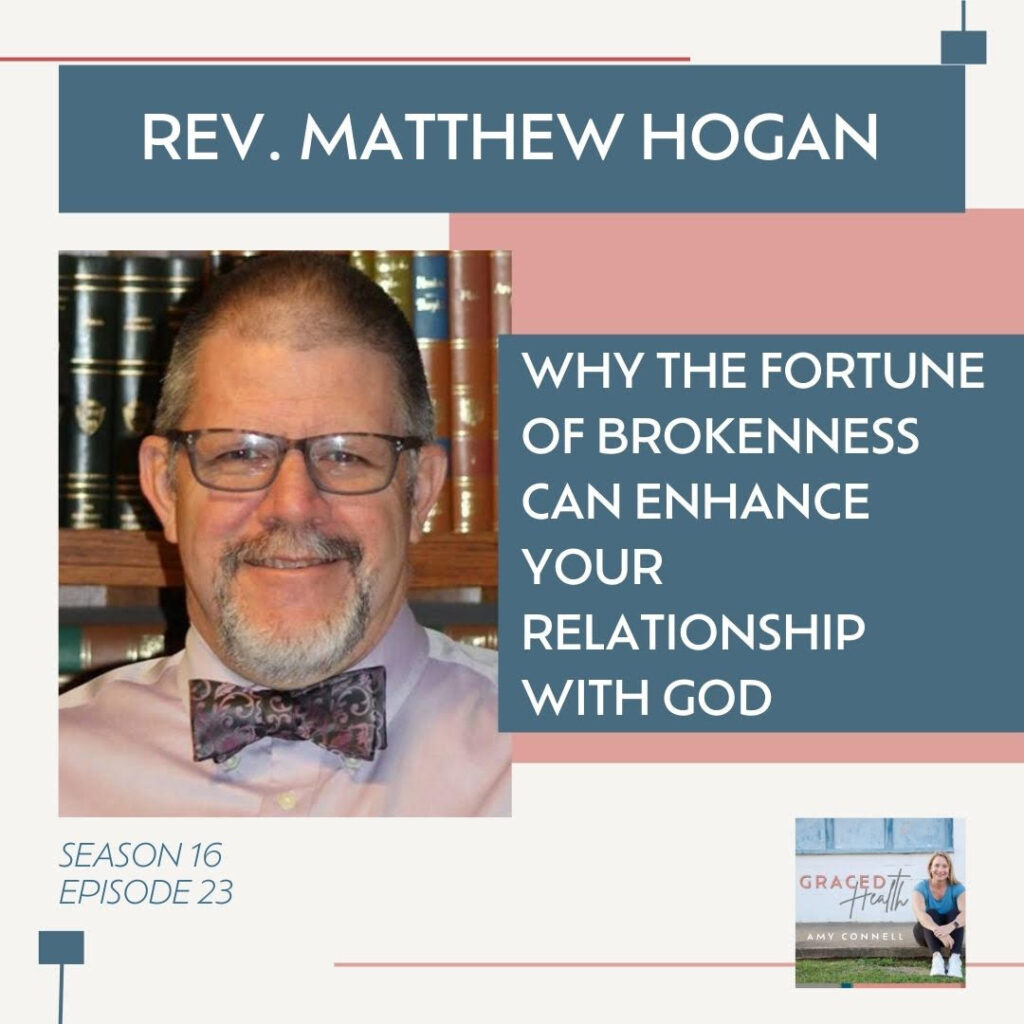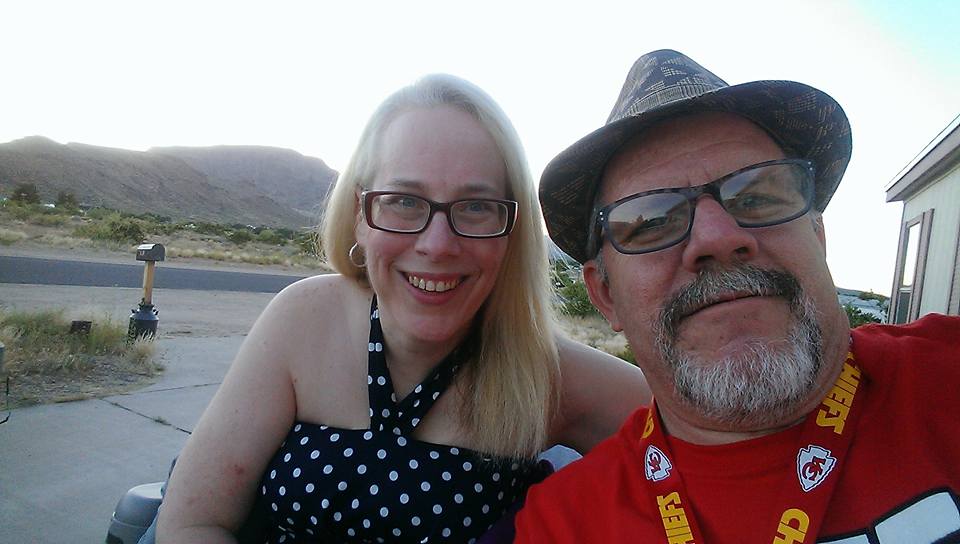Embracing Grace: Moving Beyond Christianese

Introduction: As my wife was watching her favorite “clean crime show,” I was sitting next to her, working on my laptop. Admittedly, I too enjoy the show and should have found someplace else to work. Nevertheless, I remained in the room, and a familiar conflict theme brought memories of our youth, prompting recollections of a song and then a quote by the lead singer. At the end of this mental rabbit trail, I found one concept – embracing grace. Unmasking “Christianese”: When guiding others in their faith, I often encourage them to shed what I call “Christianese.” These are well-worn sayings or verses that have lost their impact due to overuse. I challenge my counselees to articulate their faith in their own words, which frequently reveals a diminished conviction and confidence. The danger of Christianese lies in its potential to camouflage our genuine needs behind a façade. This perilous position often goes unnoticed, and I fear that a significant number of Christians unknowingly find themselves trapped there. Understanding Grace: Many denominations affirm the concept of being “saved by grace through faith.” But what does this truly mean? How many of us can articulate it in a way that is biblically sound, meaningful, and comprehensible? If you attempted to express it, you likely felt overwhelmed. And rightly so. Embracing the grace of God should never be taken lightly. I don’t mean that we must force its importance, but rather that the realization of its significance should permeate from our minds to our hearts. Romans 3:24 emphasizes our justification as a gift through God’s grace and the redemption found in Christ Jesus. The word that resonates with me here is “gift.” Like any gift, it is up to us how we respond. We can throw it out, place it on a forgotten shelf, or embrace it fully. Inviting Christ In: I refrain from asking someone to invite Christ into their heart. Revelation 3:20 (NASB95) states, “Behold, I stand at the door and knock; if anyone hears My voice and opens the door, I will come in to him and will dine with him, and he with Me.” This verse reveals that we have the choice to open the door and welcome Him in. He is already seeking us. This truth should resonate not only with unbelievers but also with believers. Too often, we acknowledge grace within the church walls but allow the world to overpower us once we step outside. Drawing from personal experience, I can attest that a life centered on His love and grace, making it our primary focus, is a much more peaceful way to live than being focused on the worries of the world. Conclusion: To those who needed to read these words, I encourage you to meditate on them and embrace the joy of His glory. Allow His love and grace to permeate your life, transforming your perspective and guiding your steps. By avoiding losing His love and grace in Christianese and wholeheartedly embracing God’s them, we can experience the fullness of His presence and live in the radiance of His glory. If you struggle with your image in Christ or believing that His love and grace are for you, then I invite you to look at my book, How to be a Christian in Today’s World: Shame or Fear of Failure vs. Living Confidently in God’s Love. If you want further assistance, you can always visit my counseling page. Facebook Twitter LinkedIn
Embracing Life’s Moments: Living with Purpose and Gratitude

Introduction: Life is a wild journey, full of twists and turns we never see coming. How can we live embracing life’s moments, living with purpose and gratitude? I recently heard Tim McGraw’s song “Live Like You Were Dying,” and it got me thinking about what it truly means to live with purpose. So, join me on this blog post as we dive into the profound lessons hidden within this song and how we can apply them to our own lives. The Journey of Appreciation: Finding Joy in the Everyday Picture this: my beautiful bride and I, cruising down the road to Phoenix, with our favorite Chicago-style eatery in mind for a pit stop. These moments of togetherness remind us to slow down, appreciate the simple pleasures, and soak in the beauty of the everyday. Personal Playlists and Meaningful Reflections: Life’s Soundtracks Now, let’s talk about personal playlists. You know, those special mixes that make our hearts sing? Well, on our road trips, my wife graciously lets me take the wheel and play my favorite playlist. It’s a collection of songs that celebrate the people I love, rock-infused worship tunes that uplift my spirit, and those catchy melodies that bring a smile to my face. Each song holds memories and prompts me to reflect on the blessings that have shaped my life. Challenging Perspectives: Rethinking What It Means to Live Fully: Okay, so some parts of “Live Like You Were Dying” might seem a bit extravagant or out of reach for most of us. But here’s the thing: the heart of the song speaks volumes. It tells the story of a father battling cancer, realizing the urgency to truly live. It’s a call to be better partners, friends, and to let go of grudges. We redefine what it means to seize each day and make it count, no matter how big or small the action. Embracing Life’s Simple Joys: Finding Beauty in the Ordinary Living fully isn’t just about grand gestures or ticking off a bucket list. It’s about finding joy in the everyday moments. From the sweet melody of birdsong to the breathtaking view of the mountains from my window, my wife and I savor these simple blessings together. Whether it’s the vibrant blooms of a rose bush or the peaceful sight of her sleeping after a tough day, life’s beauty is all around us if we open our eyes to it. Gratitude for Surprises Life has a funny way of surprising us with unexpected blessings. It could be kind words from old friends or newfound connections that lift our spirits and inspire us. Even the unexpected feedback and reviews of my book have brought diverse perspectives that I never anticipated. These moments remind me of the profound impact our lives can have on others, and the importance of embracing them with gratitude. Lessons from Near-Death Experiences: Teaching How to Live Let me share a personal story. A few years ago, I had a cancer scare that made me confront the fragility of life. In that moment, I turned to God for guidance. His answer was clear: whether facing death or continuing the journey, I needed to teach my loved ones how to truly live. Even Paul didn’t have all the answers, but he invited others to follow Him AS HE FOLLOWED CHRIST. It was a weight off my shoulders, realizing that I didn’t need all the answers. Instead, I could rely on God’s grace and guidance to show the way. Embracing the Journey, Letting Go of the Past: Moving Forward with Faith There’s a passage in Philippians (3:12-17) that resonates deeply with me. It’s like being stuck on a cliff edge, clinging to a scraggly root. But just when it seems impossible to move forward, a hero appears and extends a helping hand. In that moment, we face a choice: Do we hold on to the past, clinging to that uncertain root, or do we take a leap of faith and grab hold of the outstretched hand of Christ? The truth is, we don’t have to have all the answers or have it all figured out. Like the apostle Paul in Philippians, we can acknowledge our imperfections and embrace the one who first embraced us—Christ. We can choose to let go of our past mistakes, regrets, and the burdens of comparison. Instead, we focus on the path ahead, trusting in God’s guidance and grace to lead us forward. As we journey through life, we’re bound to encounter other believers on similar paths. Instead of wasting energy on judgment or comparison, let’s choose to support and encourage one another. In the mind of Mike Warnke, imagine a long baptismal font, like a slip-and-slide, where as we roll down it, both the Holy Rollers and those who prefer sprinkling are satisfied. It’s a playful reminder that unity and love should be our focus, rather than divisive debates. Conclusion: In conclusion, life is an adventure meant to be cherished and embraced. Just as my beautiful bride lets me play my favorite playlist during our road trips, we have the opportunity to curate the soundtrack of our lives. “Live Like You Were Dying” serves as a reminder to live each day with intention, purpose, and gratitude. It’s not about extravagant experiences or crossing off a bucket list, but about being better spouses, and friends, and forgiving others as we embrace the beauty of life. So, let’s appreciate the little moments, find joy in life’s simple pleasures, and cherish the unexpected blessings along the way. Whether it’s the breathtaking view from our window, the comforting presence of loved ones, or the impact we have on others, every moment is an opportunity to make a difference. Let go of the past, grab hold of the outstretched hand of Christ, and embark on a journey filled with faith, love, and purpose. As Mike Warnke humorously reminds us, let’s enjoy the slip-and-slide of life, celebrating our unique journeys while extending love and grace to those around us.
How do We Live Out Our Faith?

I have an author colleague who believes in deeds being the key to salvation. He points to the story of the Sheep and the Goats in Matthew 25:31-46 . Unfortunately, this leaves out so much of the rest of scripture and we have occasional polite discussions about this. The real-life problem for most of us is that if we look at the scriptures, they are chock full of admonitions about what we should and shouldn’t do. And of course, no matter how hard we try, we fail. Sometimes this creates anxiety and feelings of failure. “Why can’t I be good enough?” This is something of an epidemic in Christianity! But that just isn’t what God wants for us! God wants us to draw closer to Him first! As we do, then we will find being “good Christians” comes more easily. My belief is that our behavior is rooted in our spiritual life, not the other way around. Learning how much God loves you and then abiding in Him will bring us closer to him and in turn better lives. Please join me in learning more and growing more through discipleship. We need to focus on the big picture of God’s love from Genesis on. If we can only see the big picture, then we will understand that the full theme of the Bible is: God desiring relationship with us. Through that, we can begin to walk out of self-doubt and shame. We can begin to love others because He first loved us. And in every way and every situation, peace is easier to find. Facebook Twitter LinkedIn
Why I Use Bible Gateway and How it Can Help You
I’ve recently joined the Bible Gateway Blogger Grid. It’s a network of Christian blogs that all follow a common statement of faith and share in promoting Christ in different areas of life. I’m also linking any scriptures that I mention to the Bible Gateway Site. What that enables you to do as the reader is view the passage from many different translations and if I only list a verse or two, you can easily click to read the whole chapter to get a better understanding of context. I encourage readers to not only do their own Bible reading but if I or anyone else for that matter tells you that the Bible says something, check us! I do not want you to learn from me, I want you to learn from God. I’m just as fallible as the next guy. Happy reading!
I need to say I hear you!

One thing that I’ve learned specifically in counseling is that everyone needs to feel heard. Everyone needs to know that their concerns are legitimate I am deeply honored that many of you trust me to help. I will try to answer your questions and through my email newsletters introduce you to some other amazing resources. I’m meeting new authors and ministers. One thing we all have in common is a desire to serve, a desire to help. So, when you get an email from me introducing an author or ministry, it is an attempt to provide more than I can give you alone. But in the meantime, I will also do my very best to address the concerns that are shared with me through the questionnaire. In truth, these are the same types of questions and concerns that inspired me to start writing. These questions and concerns weighed on my heart. It bothered me that so many Christians weren’t getting their needs met already. This week, I want to talk about knowing our connection to the Spirit. I’ve wondered as so many others do, “Is it God speaking, or is it me?” Even in ministry, I would question myself. Someone did me the service though of asking me if I was praying and seeking His help. And was I giving Him control of my life? The answers were of course. a resounding yes. John Chapter 15 talks about abiding in Christ and Him and His word abiding in us. The idea is that the closer we get to Him and the more we stay in His presence, the more we know him. The man that famously argued with God and won was Abraham. When God was ready to destroy Sodom and Gomorrah, Abraham, probably knowing his nephew Lot was there argued with God. The essence of his argument was that it was against God’s nature to destroy good men with wicked ones (Genesis 18:17-33). The key here is that Abraham argued God’s nature. In essence, “Are you really going to do that? I know that’s not who you are.” Abraham was able to successfully argue with God because he was arguing from a point in line with God’s nature. This stands in start contrast to James contention that prayer based in our own desires will not be answered (James 4:3). One example is starting from a place of knowing God and in essence having the same desires as Him while the other is moving out of our own selves. So, how does this relate to knowing whether God is leading us or if we are just hearing our own thoughts? Well, it’s this concept of knowing God and moving out of that knowledge. Jesus speaks to this in the parable of the vine and branches found in John 15:1-11. Unlike some other parables, Jesus makes the meaning very clear. Those that abide in Him and He in them will bear much fruit and bring Glory to the Father. In verse 7 He specifies a method in which this connection is made. His words (in context – teachings) need to abide in us. This means that simply reading the Bible faithfully may not be the complete answer. If we walk away from reading our Bible and don’t take anything away from our time, then what good was that time? His teachings must abide in us, they must live in us and change us. They must draw our hearts and desires to be more in line with His. Does this mean that you can’t hear from God or be lead until you reach some specific level of maturity or Holiness? Does it mean that you have to have a certain amount of the Bible memorized? No! It may be a process, but it begins with the heart. as soon as you allow Him in; as soon as you are vulnerable enough, then He can begin to work in you and through you. So, that’s between you and God. I can’t answer for you if you have allowed Him in. I can’t answer if you have allowed yourself to be vulnerable to the Spirit to move in your life. That’s something for prayer and maybe some time spent with a spiritual mentor that knows you to help you decide. Another test is if whatever you are hearing is truly in line with the scriptures. Again, if you aren’t sure, leaning on a spiritual mentor is important here. But the more comfortable you get in Him and living in Him, then the more that you can trust that what you hear is from Him.
What These Desert Plants Can Tell Us About Anxiety and Planning

Anyone who gardens probably knows about zones. Zones for plants are primarily based on latitude. The zones then run primarily east to west. Plants are fairly picky about the climate where they grow. But altitude can affect the zone too. Despite being in a fairly southern zone, we live in a high desert mountain valley. Up in this altitude we have Joshua Trees. In the picture, there is a tree with spiky leaves. That’s a Joshua Tree. They thrive at altitudes around 3,000′ to 4,000′. Arizona is known of course for the Saguaro, also in this picture. Although they can grow up to 4,000′ they thrive closer to 2,000′ altitude. The two just don’t naturally mix. There is normally a very wide line between them. And yet, there is a small area along Arizona’s Highway 93 that just happens to be at the right altitude where they do mix quite happily. For someone who has lived in high desert mountain valleys most of my life, this is always a joy to see when we drive back and forth to Phoenix from our home. The point of interest here is plants that not only almost never mix, but grow in completely different areas. Yet there are strange occurrences where that wide broad line completely disappears. As a counselor, I’m all too aware that the vast majority of people live with a high level of anxiety they may not even be aware of. As in, we become so accustomed to carrying a high level of anxiety that we end up considering it to be our norm. When I work with people on changing what they think about (we’re told in Philippians 4:8 to think about things that are true, pure, lovely, commendable, excellent, and worthy of praise) they often come back with a list of very real concerns. Bills, getting along with other people, problems at work or school, and many more. I often talk about how to change our thinking, but today I want to talk about lines. None of our worries fit the description of the things we’re supposed to think about. But, many of them are very real. There are appropriate times to sit down with our bills and a calculator and figure out which ones we can pay Friday and which ones have to wait. Then it’s likely appropriate to call and make arrangements for the ones we won’t pay. During this process, our thoughts are naturally very close to the issues that cause anxiety. So feeling a little anxiety is normal and acceptable. (There should be some relief when you finish the planning session though, because you accomplished something!) So, at that point our thought lives and the troubles lurking out there are coexisting like the Saguaro and Joshua Tree in the picture above. While planning or dealing with a situation it makes sense to think about it. Where most of us need to make a change is realizing that under normal conditions, there should be a big fat line between potential worries and our thought lives. If I’m in the middle of my duties at work or maybe spending time with family and friends, then dwelling on my finances may be our norm. But it isn’t helpful. If my mind is supposed to be on a work task, but I’m fretting about my rent or car payment, then I’m not doing right by my employer or myself. These are not times when I can do anything about it. So, we adjust our focus to doing our job well, or enjoying the people we love. Then at the appropriate time (after we get off work on payday for example) we can take action on the plans we made. Again, the line can get a little narrower. If we can learn to do that, only focus on potential worries when we are planning or taking action, then we can create a separation between the two. As we get better at practicing that new skill (yes, it takes practice and you won’t always get it right) then life’s troubles and our thought lives will become as separate as the Saguaro and the Joshua Tree except for the very specific and brief times when they appropriately coexist. Give it a shot. But, if you can’t beat it on your own or there are other issues like a negative self-image that complicate things, don’t be afraid to reach out to myself or someone you can trust. Your mental, emotional, and spiritual health is just as important as your physical health! Get 30 Inspirational Memes in 30 Days I’ll also send weekly blog posts SubscribeWe won’t send you spam. Unsubscribe at any time.Built with ConvertKit
Learning My Own Lessons

When we look at the Israelites in the desert as they are wandering. It’s easy to look down on their level of trust. They see God provide, then a few verses later, they come across a new challenge and seem to have forgotten in just a moment or two how good God has been to them. But a moment or two of reading for us is much different from the time and experience of those living through the circumstances. It wasn’t just a moment or two of reading a page for them, it was longer in between and legitimate, real life feelings and fears. We like to think that we don’t do the same things. And yet, we do, When we look at the Israelites in the desert as they are wandering. It’s easy to look down on their level of trust. I experienced something very similar recently. I talk about trusting God and what that really looks like. Promoting a book is something I’m having to learn to do and there is as much advice about how to do it out there as there is for anything else. Some of it is obviously bad or unethical. But, I’ve been fortunate to find a few different sources that all seem trustworthy in both who they are and what they know. And they are all teaching pretty much the exact same things. This is important to me because my book that is out and the next one are both ministry and something that I believe God directed. So, it only makes sense to learn how to spread it far and wide. I recently had an opportunity to get some help, but that help was expensive. I felt good about it, but neither of the two people I went to for confirmation liked the idea. I said to both of them, “I either have to trust God with my book or my food.” Amy Connell interviewed me on her Graced Health Podcast. (Catch the interview here.) Even the title she gave it, Why the fortune of brokenness can enhance your relationship with God brought conviction to my heart. Then I listened to the interview and I felt a little foolish. You see, she got the term “fortune of brokenness” from my own book and asked me what it meant in the interview. In essence, I pointed out that in my early marriage, we knew we didn’t have anything. So we relied on God. A few years ago, I rediscovered that when things looked very dire for us. I remembered my need for complete and utter dependency on God. So now, my statement, “I have to trust God with the book or my food,” becomes utterly foolish. Even living with our minimal finances, we have developed a rhythm. The income is almost exactly the same each month and we’ve come to where we can count on it. Ahhh, there’s the danger zone. I knew what was coming in and I knew what had to go out. I stopped needing to trust God for it because it felt like a given. We’ve had a temporary blip where we have lost about 1/4 of our monthly income. I’m confident that it is very temporary, but that combined with my own teachings has reminded me that I need to trust God with the book AND my food. How much better will we be if we trust Him for everything and give Him credit when we don’t have to rather than the other way around?
Keeping Our Eyes on Him

You may know the story of Peter joining Jesus in walking on the water. If not you can find it in Matthew 14:22-33. (The following is also found in Matthew 14:13-22, just before the passage above.) Jesus had just gotten the news that his cousin and ‘predecessor,’ John had been beheaded. Jesus got into a boat and headed out, looking for some solitude. He wanted to be alone. We need to remember that Jesus deliberately and knowingly had emptied Himself to become like us (Philippians 2:5-7). This means that he felt the loss of His cousin very deeply and needed to grieve, just like any of us would. But when He went ashore, He saw that people had been walking from the villages in the hope of intercepting Him. By now His fame as a healer had spread and people desperate from their pain followed Him, hoping that they too would be healed. But when He went ashore, He saw that people had been walking from the villages in the hope of intercepting Him. By now His fame as a healer had spread and people desperate from their pain followed Him, hoping that they too would be healed. He went to be alone. Instead, He found a group of thousands waiting for Him. I think we sometimes miss the significance of His compassion. But instead of getting back in the boat or trying to avoid them, His compassion drew Him to them and He healed the sick. In the TV series The Chosen they show that at the end of one of these healing sessions, Christ is exhausted. I’m confident that the scriptwriters got it right. He started the day needing time alone to grieve. Then he healed thousands and miraculously fed them from just five loaves of bread and two fish. It’s no surprise that when it was all over he sent the disciples on ahead by boat. I somehow doubt He could have told them, “Go on ahead, I’ll walk!” And yet, that’s what he did. He sent the crowds away and went up on the mountain there to pray. It was a windy night and the disciples were not making good progress. Between 3 AM and 6 AM, he caught up to them. Peter, the eager beaver, whose eagerness outpaced his faith, asked Christ to call Him to come to Him. If Christ was walking on the water, Peter wanted that too. So Peter stepped over the side of the boat and began walking towards Jesus. But as he looked around and remembered the fierceness of the wind, he began to get scared. As he did, he began to sink. His focus shifted from the Lord to the worldly distractions around him. A verse commonly misquoted is Philippians 4:13. When taken in context, Paul is talking about how he had lived through having plenty (money, food, etc) and not having enough. He explains being able to be content through Christ. Although Mark 9:23 shows Christ saying that all things are possible through faith, I want to focus on this similarity between Paul and Peter. How do we get through trying times or scary circumstances? Either we struggle with stress and anxiety or we somehow live with contentedness. We need to keep our eyes on Christ! This may seem difficult when we’re already in a place of anxiety or stress. But, being proactive by living in Him will give us the strength to do that. To get more help with building a deeper, life-altering relationship with Christ, my book, How to be a Christian in Today’s World: Shame or Fear of Failure vs. Living Confidently in God’s Love might just help. Click the link below to see it on Amazon. How to be a Christian in Today’s World on Amazon
Amy Connell of Graced Health Released Her Podcast Interview of Me Today

I joined Amy Connell on the Graced Health podcast, where she has grace-filled conversations about physical, mental, and spiritual health. Amy and I share a deep conversation about some aspects of our faith that are harder to grasp. Per Amy – We discuss: The Christian “elephant in the room” and what it is The fortune of brokenness Matthew and his wife experienced in early adulthood and how that impacted his relationship with God God’s faithfulness and presence even as we weave in and out of our focus on him Encouragement for the person who thinks “I’ve been away so long I don’t think God would want me to come back” Authentically rejoicing even when we don’t feel like it Click on the image below to go to the podcast.
A Little Introduction and A Little About Joy

I’ll admit, this picture is a few years old, but the only real difference is that I have significantly more gray than I did here. But this is my beautiful bride and me after a “walk” around the neighborhood in our power chairs after church. It was Father’s Day and unseasonably cool so we decided to enjoy the weather and being together. Because she’s left-handed and I’m right-handed, we can roll down the street next to each other, holding hands. Much has happened since this photo, but this is still how I see my wife. This is how I saw her when she was laying in a hospital bed near death for months on end, just over a year ago. But, it’s not some silly dreamy thinking. This is who she is. This is the woman that has grown with me and is growing old with me. This is the woman that has worked just as hard as I have at learning to be good spouses. This is the woman that sees the same things in the world and in the calling that God has for us as I do. The beauty in it, is she’s seeing the same thing I am, on her own. She’s not just my “yes woman,” she prayerfully seeks God and listens. She’s then able to confirm what I’m hearing or makes me go back and check that I’m hearing correctly. The work that we’ve done in our own lives is what enables us to counsel marriages and people with depression or anxiety. Those smiles, they’re not “Instagram” smiles where as soon as the camera goes away, so do the smiles (and yes, I’m smiling too). These smiles are authentic to who we are. We are able to be these people despite our disabilities and struggles because of our trust in God and our choices to focus on things that are true, pure, lovely, commendable, and worthy of praise (Philippians 4:8). That’s how I deal with my disability and she with hers. Yes, we’ve had hard days. Yes, I’ve had days where I made it pretty clear to God that I didn’t care for the way He was handling things. And I’ve had many many days where I just wanted Him to let me in on the plan. Now faith is the assurance of things hoped for… (Hebrews 11:1) So, if I insist on knowing the plan, that doesn’t show as much faith! Like the Israelites wandering through the desert, I have evidence of God’s provision time and time again, and yet, I get tempted to worry or fear. But I have to say, without a doubt, that the years that I have had to rely on Him because I honestly don’t have what I need to survive have been the most years of my entire life! But one thing that we really try to do is to follow the Biblical command to “Rejoice Always.” The English dictionary defines rejoicing as feeling great joy. Then the dictionary says joy is to feel great happiness. So, “Feel great great happiness always?” No, I don’t think so. As a matter of fact, that’s just plain absurd! Rejoicing always is choosing each day at least to praise God and to be grateful for Him for something he’s given to you. I said each day. Tape a note to the inside of your bedroom door if you have to so that you remember to stop and choose to rejoice in Him or something He has done for you. But that’s not always is it? But START there. Then as you can remember, start doing it more often, etc. I’m not happy right now, I need a breathing treatment, my ankle hurts, and I don’t want to get dressed and go run an errand. I could focus on that. But, writing this post has reminded me to rejoice. I’m not happy, but I’m content and very grateful for all I have and all He has allowed me to do in His name. Someone asked what I need or who could they help to connect me to. I have no idea who this person was. But there are two things on my heart right now. I need to paint my house and put up a small awning to keep rain away from my front door to prevent further damage. I know God gave me the book that is out and the next book that’s about ready to come out – Blessed Brokenness: Seeing God’s Glory in the Ashes of Life. My wife and I are convinced that both of these are messages that need to get out, that they are messages God gave us. I need reviews on Amazon in particular (50 is the first magic number) and I need to get this mailing list and the books themselves in front of more people. I have never sent an email that said, “Please buy my book.” And I won’t. Of course, I hope you do. I truly believe that it will bless you! I keep the link in front of you and leave it at that. But yes, spreading the message of how much God loves each of us is important and any help that any of you can give will be greatly appreciated. (You can share a link to a blog post that inspired you on your social media. If you have a blog of your own, I’d be happy to write a guest post. If you have a podcast, I’d love to be interviewed. Whatever comes to mind.) I hope this little introduction brings us a little closer and you continue being blessed by what God gives me to share. By the way, I’ve referred to things people have asked here and in the past, I have a quick 4 question survey that I would love for you to take to help me continue to bring content that serves you! You can access the survey here.

